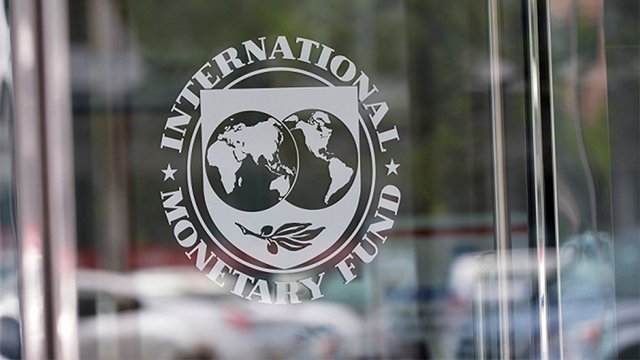IMF approves $890 mln of second EFF tranche for Ukraine – Fund

The Board of Executive Directors of the International Monetary Fund (IMF) has completed the first review of the Extended Fund Facility (EFF) program for Ukraine and approved the immediate allocation of the second tranche of SDR 663.9 million (about $890 million), which will be used to support the budget.
"The authorities have made strong progress toward their commitments under the EFF under challenging conditions, meeting all applicable quantitative performance criteria through end-April and structural benchmarks through end-June, and remain highly committed to the program," the Fund said in a release on Thursday on its website.
At the same time, the Fund noted that sustained accountability and reform momentum are needed to ensure macroeconomic and financial stability in the challenging period ahead.
"This includes maintaining a strong tax revenue base (including by refraining from measures that would erode the tax base), supporting steady disinflation and exchange rate stability, supporting banking sector health, and advancing crucial governance and anti-corruption reforms, including with respect to asset declarations, AML/CFT and the Specialized Anti-Corruption Prosecutor's Office (SAPO)," the release notes.
It is also vital that external financing for budget support continues on appropriately concessional terms to safeguard macroeconomic stability and ensure that the financing of reconstruction projects is on terms consistent with fiscal and debt sustainability.
It is pointed out that, in the area of fiscal policy, efforts should also be focused on the development of a National Revenue Strategy (NRS), which will anchor much-needed revenue mobilization to support reconstruction and social spending. "Restoring the legal framework for medium-term budget preparation, budget credibility and debt management is also important, combined with measures to improve fiscal transparency and strengthen public investment management," the Fund said.
As for financing strategy and debt sustainability, the IMF says that external budget support will continue to constitute the bulk of fiscal financing, although mobilization of domestic financing along with the elimination of monetary financing remains important.
The Fund added that, in addition to the commitment made in March 2023 by the Group of Creditors of Ukraine (GCU) to restructure part of the official debt, the Fund staff assessed that there was a credible process in place for the treatment of external commercial debt.
Speaking of monetary and exchange rate policy, the IMF emphasized that the program aims to continue supporting steady disinflation and exchange rate stability, including through maintaining an adequate level of FX reserves, while prudently managing the wartime liquidity surplus.
"Once conditions permit, the program would support a transition toward a more flexible exchange rate, further easing FX controls, and return to an inflation targeting framework," the Fund said without any specification of the timing.
In the financial sector, the IMF called for continued vigilance continued vigilance is warranted given the true health of the banking system remains opaque, and the risks of further shocks persist, including bank nationalizations. Bank diagnostics, reforms to banking oversight, governance of state-owned banks (SOBs) and contingency planning remain high priorities.
The Fund also stressed the importance of governance and anti-corruption reforms needed to quickly restore the living standards of the population and pave the way for EU accession, as well as to build public and donor confidence, including in the post-war period.
"It will also be important to pursue an integrated strategy for critical spending during recovery and reconstruction, including on energy and procurement," the IMF said.










